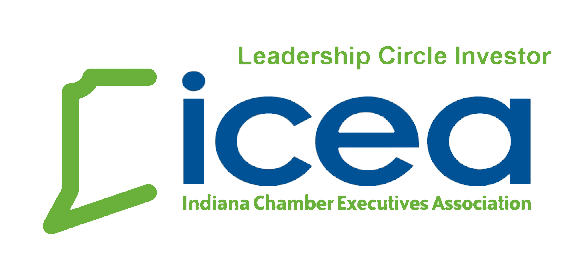Legislative Update - January 24
Senate Bill Targets Double Taxation for Business Owners
SB 314 / Chamber Supports
The Senate Tax and Fiscal Policy Committee heard testimony this week on Senate Bill 314. The bill seeks to refine the state’s pass-through entity tax (PTET) and eliminate double taxation for resident business owners. Authored by Sen. Scott Baldwin (R-Noblesville), the proposal would allow pass-through entities to exclude income earned by resident owners in other states from Indiana taxable income before allocation and apportionment.
Currently, pass-through entities that elect pre-apportionment treatment taxes resident owners on their entire share of income, even if a portion is already taxed in another state. While Indiana offers a tax credit for out-of-state taxes paid, differences in rates and rules often leave owners with an additional tax burden. Senate Bill 314 would address this by enabling businesses to exclude income already taxed elsewhere, ensuring owners are taxed only once.
For example, an Indiana resident owning 50% of an LLC operating in Ohio and Indiana might currently be taxed in Indiana on their full share of the LLC’s income, even though a significant portion is taxed in Ohio. Under SB 314, the LLC could exclude the Ohio-taxed portion from Indiana’s tax base, reducing the owner’s liability.
This adjustment not only prevents double taxation but also enhances the PTET’s federal benefits, preserving the full deduction of state taxes at the entity level. The bill makes Indiana’s tax system more equitable and attractive for multi-state businesses while simplifying compliance. Though it may slightly impact state revenue, supporters argue the economic growth and improved fairness make the proposal a valuable step forward.
Removing Barriers and Aligning Workforce Training Visions
HB 1515, SB 366 and SB 448 / Chamber Supports
Legislative committees have wasted no time with the start of session moving forward on several significant education and workforce initiatives, including deregulation, training and credentials, expanding pre-K capacity and more.
The Chamber testified this week in support of authorizing charter schools to be eligible to access STEM teacher recruitment grants through House Bill 1515, authored by Rep. Robert Behning (R-Indianapolis). We also advocated for removing unnecessary regulations for pre-K childcare programs in public and charter schools to promote more pre-K capacity building in existing schools to meet family needs via Senate Bill 366, authored by Sen. Linda Rogers (R-Granger).
We also testified in favor of Senate Bill 448, authored by Sen. Greg Goode (R-Terre Haute). This is significant legislation aimed at energizing and aligning higher education, training and workforce development needs to drive Indiana’s economic competitiveness. The bill will empower the Commission of Higher Education with an expanded role in aligning training, data collection and planning, as well as require the Department of Education to develop a plan for market driven, stackable credentials in three primary employment sectors.
The Chamber’s testimony on SB 448 raised the importance of determining and aligning training and credential programs with the actual needs of employers filling current and future jobs in this rapidly changing economy.
Regional Economic Development Returns as Focus
SB 377 / Chamber Neutral
In 2021, we had READI (the Regional Economic Acceleration and Development Initiative). In 2023, we had READI 2.0. Leading up to 2025, we heard repeatedly that there would be no READI 3.0 and likely little, if any, funds allocated for regional economic development – certainly not another $500 million tranche.
Time will tell if this year’s budget will allocate additional investments in quality of life and/or quality of place initiatives, but supporters should be encouraged by the introduction of Senate Bill 377, authored by Sen. Greg Goode (R-Terre Haute), and the dialogue that occurred during Thursday’s hearing in the Senate Appropriations Committee.
The READI appropriations essentially gave a block grant to the Indiana Economic Development Corporation to distribute funds to regions around the state after evaluating their strategic plans. In contrast, SB 377 outlines specific requirements that must be met before regional funding can be allocated and disbursed to a state agency that will subsequently grant funds to regions. It also limits regional development funds to go to only projects that align with specific priorities, including science, technology and defense projects.
The Chamber testified as “neutral” on SB 377 during the hearing. Our concern is that focusing investments in certain industry sectors might lead to the neglect of other important areas of regional development, such as traditional industries, infrastructure or workforce development programs that may be just as important for regional growth depending on the specific needs of a particular region.
Additionally, one might argue that the state should not try to pick economic winners and losers but rather maintain a level of flexibility so that priorities can change over time.
We will continue advocating adamantly for investments in regional economic growth but trust the bill can be amended to accommodate regional strategic plans with priorities that fall outside of the bill’s mandated industry sectors. We are optimistic based on commentary from members of the committee, who all seemed aligned in supporting regional growth but without dictating the investments’ destinations.
The Chamber will work with members of the General Assembly to ensure SB 377 can serve as a viable vehicle bill for regional economic development funding.
Healthcare Bills Signal Cost and Compliance Challenges for Employers
SB 475 and 480 / Chamber Opposes
The Senate Health and Provider Services Committee advanced a number of bills that impact health care access and costs, with two proposals carrying significant implications for business owners and employers.
Senate Bill 475, authored by Sen. Justin Busch (R-Fort Wayne), passed committee 10-2. This bill reprises a prohibition on noncompete agreements between physicians and employers starting July 2025. Rather than addressing specific issues with noncompete clauses, which have generally been resolved by courts in favor of the employee, this legislation intervenes heavily in the contracting rights of both employers and employees. This measure and a broader prohibition introduced in the House (House Bill 1625) greatly impact employment arrangements, leading to challenges for healthcare providers in retaining staff.
Senate Bill 480, introduced by Sen. Tyler Johnson (R-Leo) and passed unanimously, imposes strict limits on prior authorization practices, capping it at less than 1% of covered services and providers annually. While the bill includes some reasonable provisions, such as prohibiting the revocation of a prior authorization after approval and requiring peer review of requests, its overall scope is seen as overly expansive. Employers could face higher health plan costs as insurers adapt to reduced oversight, making benefits more expensive and difficult to manage.
Senate Bill 140, which mandates contract provisions like administratively set dispensing fees, and Senate Bill 503, which targets pharmacy benefit managers with additional compliance requirements, were also considered.





